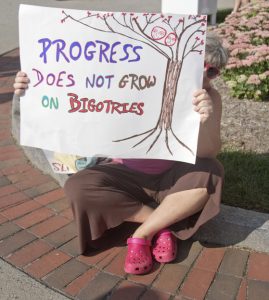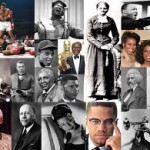
All News Sources Are Not Truthful
January 23, 2022
Blacks Are Readily Accepted in Sports and Music
February 7, 2022As we approach another Black History month, there is so much controversy around whether to teach black history or not teach it. Misinformation of what is actually occurring in schools is rampant, fueling misplaced anger, anxiety, and fear.
Let’s acknowledge and agree the subjects of race and racism continue to be uncomfortable for many of us when it comes to having an open and honest conversation whether at home, in a classroom, community forum or any kind of discussion.
To teach Black history or not teach it is really not the question. Black history and the black experience are part of American history. All of American history should be taught, age appropriately, from grade school through college.
There should be community forums and group discussions. Too often, suppression, denial, distortion, false accusations, casting blame, engendering guilt, and fearmongering seem to be the more comfortable paths taken.
Facts about race and racism in America should be treated honesty and truthfully without suppression or censorship. Such an approach could be freeing and healing.
A complete accounting of American history about Blacks has never been taught at any level in the educational system in this country—from grade school to post graduate school. No matter what level each of us completed, we have first-hand experience and know this to be true.
Sadly, to teach Black history or not to teach it is causing such an uproar across America.
Whether you like history or not, there are things when it comes to Blacks and the subject of race that are undeniable: America embraced and maintained an institution of slavery for centuries culminating in the Civil War; the vestiges, problems, practices of inequality, discrimination and oppression of Blacks have been an integral part of American life and society and continue to this day.
During the last several decades, there have been attempts to integrate black history and the black experience in America in some areas of study in our schools. Most notably at the secondary level, it occurs during Black History month. In college, it occurs in classes that focus on African American studies.
But such recent efforts to address the long-standing void and absence of Blacks and the black experience being left out of the history of America are band-aids at best. But the debate about whether to teach Black history or not is taking a life of its own.
If American history was taught in its totality—factually and truthfully—finally real progress can be made when it comes to healing and improving race relations.
One has only to look at race relations in their own neighborhoods, communities, cities, states and this nation to know that race and racism are topics that need to be addressed—in all of its facets. And yet, in 2022, we are subjected to a campaign of whether to teach Black history or not.
How does anyone or anything grow, get better without self-examination—examination that is thrown bare, unvarnished, approached with clear eyes and anticipation, seeking understanding and a better path forward.
We are doing ourselves, our children, and many generations of Americans a grave disservice to continue to argue about whether to teach Black history or not.
How will we ever hope to get better when it comes to how we should get along as caring and decent human beings.





